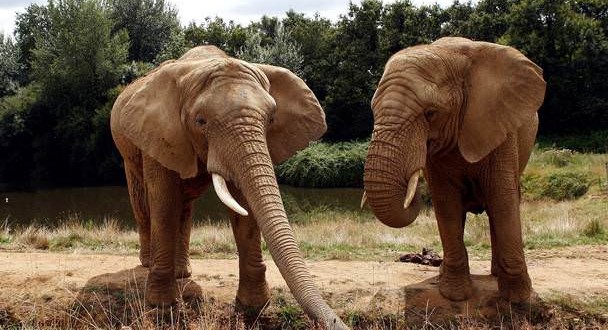African elephants may have the most developed sense of smell of any animal. Scientists have discovered that these elephants have 2,000 olfactory receptor (OR) genes, more than twice found in the genome of a dog, and five times that found in the human genome. The findings have been published in the journal Genome Research.
To characterize the olfactory capabilities of different mammals, the authors examined genome sequences from 13 placental mammals and identified over 10,000 OR genes in total. The repertoire of OR genes found in any given species was highly unique – only 3 OR genes were shared and evolutionarily conserved amongst all 13 mammals. Surprisingly, the African elephant had the most extensive olfactory repertoire, with almost 2,000 OR genes. “The functions of these genes are not well known, but they are likely important for the living environment of African elephants,” said author Yoshihito Niimura.
“Apparently, an elephant’s nose is not only long but also superior.” Conversely, humans, along with our primate relatives, have much fewer numbers of OR genes compared to all other species examined, possibly as a result of our diminished reliance on smell as our visual acuity improved.
The authors traced the evolutionary histories of OR genes using a novel computational tool to deduce ancestral genes, and then examined their duplication or loss in each species. Some lineages of OR genes greatly expanded in a given species, such as an ancestral gene that has duplicated in elephants, generating 84 distinct genes (humans and other primates only have 1 copy), while other OR gene lineages are completely lost. Each species’ unique olfactory repertoire, resulting from hundreds of gene duplications and deletions during evolution, highlights the molecular basis for differences in olfaction across organisms.
“Comparison of the repertoires of OR genes among mammals lets us know the commonalities and differences of olfactory perception, deepening our understanding of the sense of smell in humans,” Niimura said.
Agencies/Canadajournal

 Canada Journal – News of the World Articles and videos to bring you the biggest Canadian news stories from across the country every day
Canada Journal – News of the World Articles and videos to bring you the biggest Canadian news stories from across the country every day

